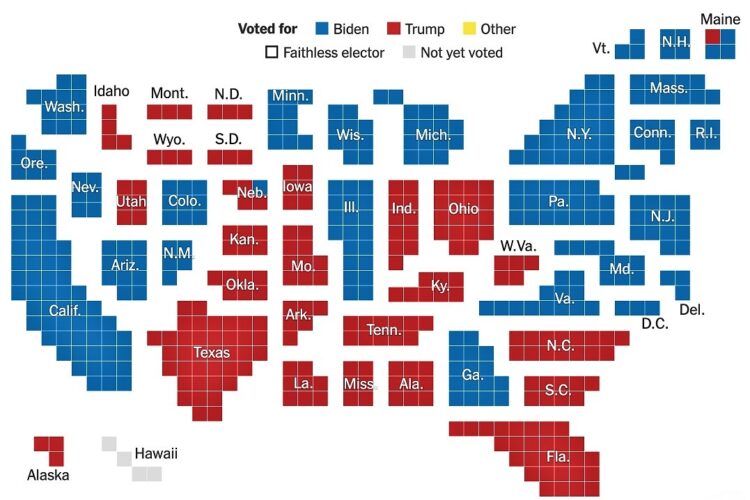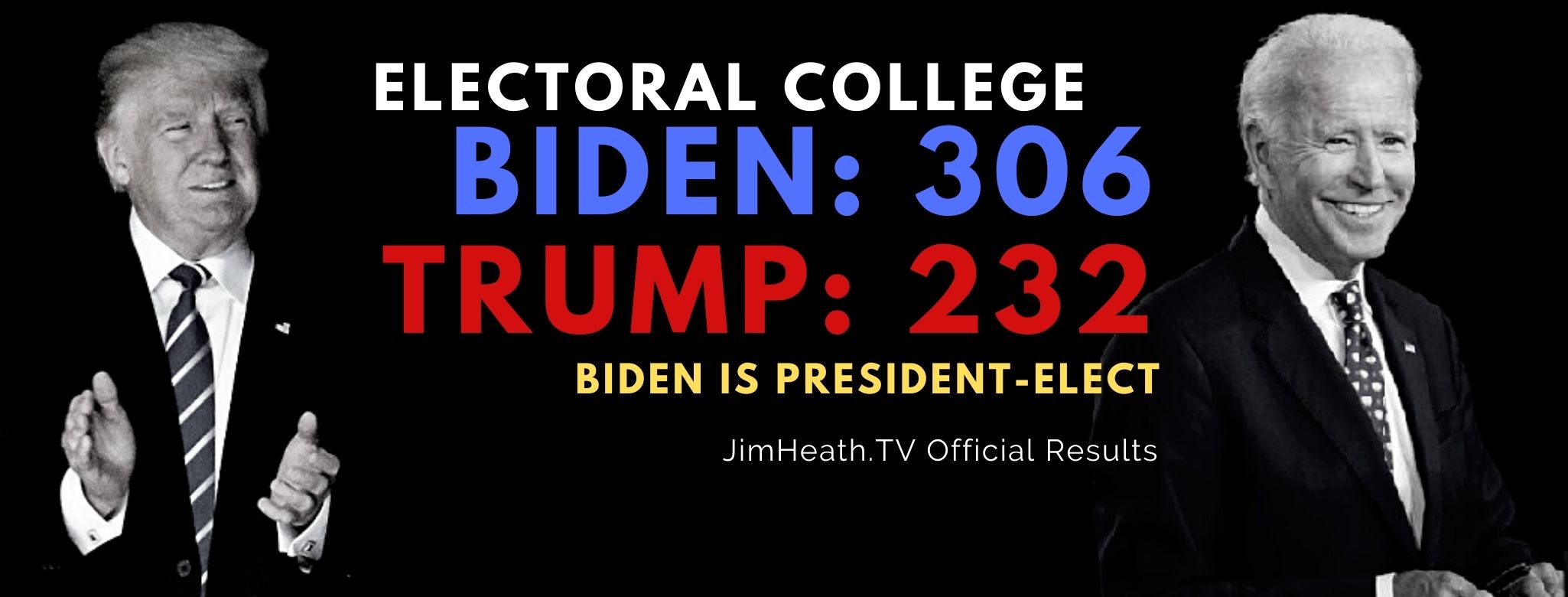Former Vice President Joe Biden has officially amassed the electoral votes to secure his White House win.
California and its 55 electoral votes put the president-elect over the top today, despite President Trump’s efforts to subvert the Nov. 3 election results.
Members of the electoral college convened in state capitals throughout the country today to formally vote for Biden.
Following the gatherings, Biden said, “The flame of democracy was lit in this nation a long time ago. And we now know that nothing — not even a pandemic — or an abuse of power — can extinguish that flame.”
In the end, Biden received 306 electoral votes to Trump’s 232.
Trump has planned no public events but continues to tweet grievances about the election, which he claimed Sunday is “under protest.”
Six of the states in which Trump contested his defeat — Nevada, Arizona, Georgia, Pennsylvania, Wisconsin and Michigan — cast their electoral votes for Biden.
A top Senate Republican today warned members of his party not to challenge the electoral college results when both chambers of Congress meet next month to officially tally them.
“I think that would be a bad mistake,” Sen. John Cornyn (R-Tex.) told reporters at the Capitol on Monday afternoon when asked about a possible GOP effort to object to the results.
“I think there comes a time when you have to realize that despite your best efforts, you’ve been unsuccessful. That’s sort of the nature of these elections,” Cornyn said.
He added: “I just hope they realize that it would be futile and it’s unnecessary.”
At least one Trump ally, Rep. Mo Brooks (R-Ala.), has suggested he will try to use an 1880s law that allows members of Congress to challenge a state’s results during the Jan. 6 tally and make the whole Congress vote on whether to accept the results.
To do so, however, one senator would have to join in Brooks’s effort. So far, no senator has publicly declared that they would, although Sens. Rand Paul (R-Ky.) and Ron Johnson (R-Wis.) have reportedly declined to rule it out.
Cornyn also on Monday inched closer to calling Biden “president-elect,” telling reporters that the title is warranted “subject to whatever additional litigation is ongoing.”
But he declined to call on other Republicans to use the term, saying, “I’ll leave that up to each individual.”
Sen. John Thune (R-S.D.) also signaled he is prepared to call Biden president-elect.
“Well, I mean, once somebody gets 270 [electoral votes] — I understand they’re ruling right now, but I think that’s the process we have, yes,” Thune told reporters.
Asked whether he has any doubts, Thune replied, “As soon as he crosses the 270-vote threshold, I mean there are still a couple of, I guess, last steps in the process, but in my view that’s how in this country we decide presidential elections. That’s our Constitution, and I believe in following the Constitution.”
Thune, too, was dismissive of any effort to challenge the votes on Jan. 6. While there are “people who feel strongly about the outcome of this election,” at some point, “you have to face the music,” Thune said, adding that “once the electoral college settles the issue today, it’s time for everybody to move on.”
“It’s their prerogative. It’s allowed for in the Constitution. But it’s not going anywhere,” he said of a potential challenge on Jan. 6. “It’s an opportunity for people to vent and protest, but in the end, we have a clear way of determining a president, those steps have been adhered to, they’ve been followed.”


